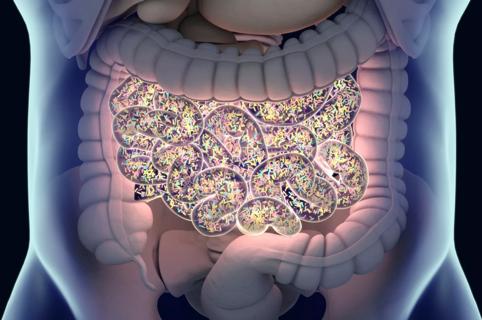Awaiting FDA approval and funding to begin clinical trials

Stem cell therapy may prevent and even reverse opioid tolerance, according to new Cleveland Clinic research. The newly published findings demonstrate that “this emerging therapeutic strategy has shown promise to impact clinical practice and improve the efficacy and safety of opioid therapy.”
Advertisement
Cleveland Clinic is a non-profit academic medical center. Advertising on our site helps support our mission. We do not endorse non-Cleveland Clinic products or services. Policy
The widespread chronic use of opioids in pain management often lead to opioid tolerance (OT) and worsened pain after starting chronic opioids, an effect known as opioid-induced hyperalgesia (OIH). The amount of opioids prescribed increased by three times from 1999 to 2015 in the U.S., and opioid-related deaths claimed more than 42,000 lives nationwide in 2016.
There is a “need to find new solutions for OT and OIH as part of a national effort to combat chronic pain as a public health issue and the opioid epidemic as a national crisis,” writes the research team.
In preclinical trials, the researchers found that mesenchymal stem cells (MSCs) suppressed neuroinflammation, which had “powerful therapeutic effects on OT and OIH.” The MSC therapy actually prevented and reversed OT and OIH in rats and mice. The research found that using both intrathecal and intravenous transplantations were safe and that “the preventive and therapeutic effects were long-lasting and consistent across different assessment schemes.”
“MSC therapy has enormous potential to profoundly impact clinical practice and improve opioid efficacy and safety,” says principal investigator Jianguo Cheng, MD, PhD, of Cleveland Clinic’s Pain Management Department.
Using stem cell transplantation may allow for a low dose of opioids to be effective in the treatment of pain. Dr. Cheng says he and his team see three reasons that this treatment could be practical: its efficacy, its safety in animal studies, and the ease of clinical application. The team is hoping to get FDA approval and secure funding in order to translate the laboratory findings to clinical trials and applications. The goal, he says, is to be doing clinical trials within the next three years.
Advertisement
The research team published its findings in Journal: Clinical Pharmacology & Therapeutics: http://onlinelibrary.wiley.com/doi/10.1002/cpt.959/full
Advertisement
Advertisement

First full characterization of kidney microbiome unlocks potential to prevent kidney stones

Researchers identify potential path to retaining chemo sensitivity

Large-scale joint study links elevated TMAO blood levels and chronic kidney disease risk over time

Investigators are developing a deep learning model to predict health outcomes in ICUs.

Preclinical work promises large-scale data with minimal bias to inform development of clinical tests

Cleveland Clinic researchers pursue answers on basic science and clinical fronts

Study suggests sex-specific pathways show potential for sex-specific therapeutic approaches

Cleveland Clinic launches Quantum Innovation Catalyzer Program to help start-up companies access advanced research technology